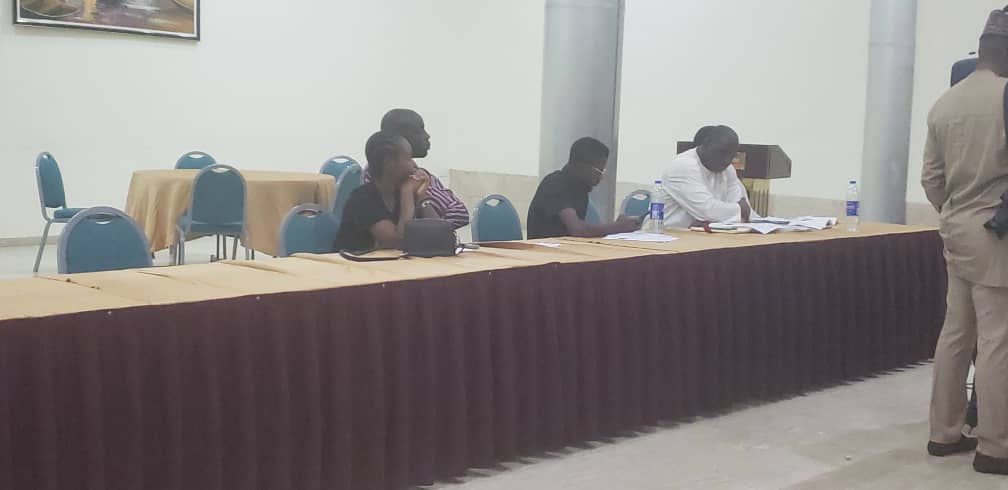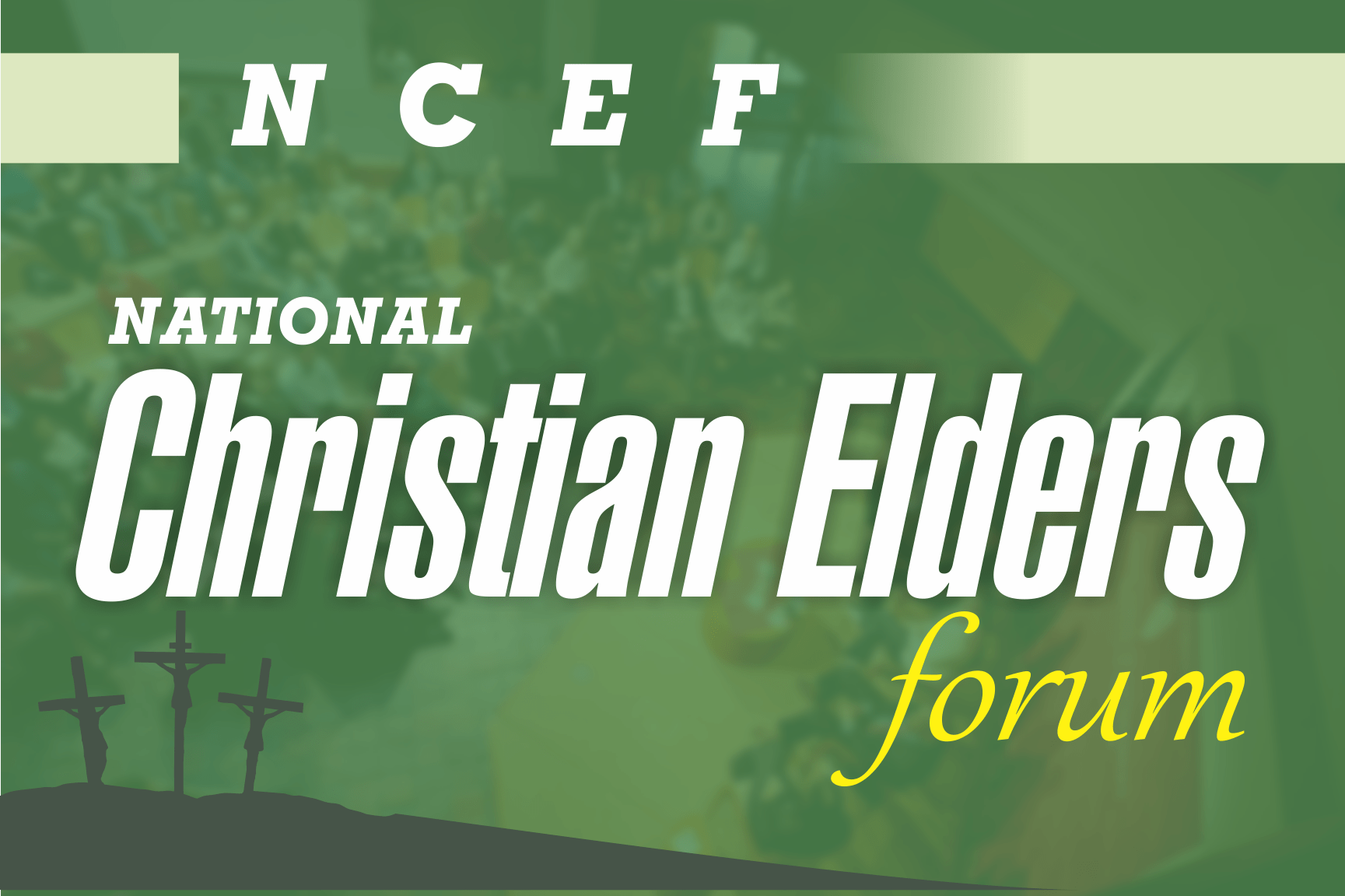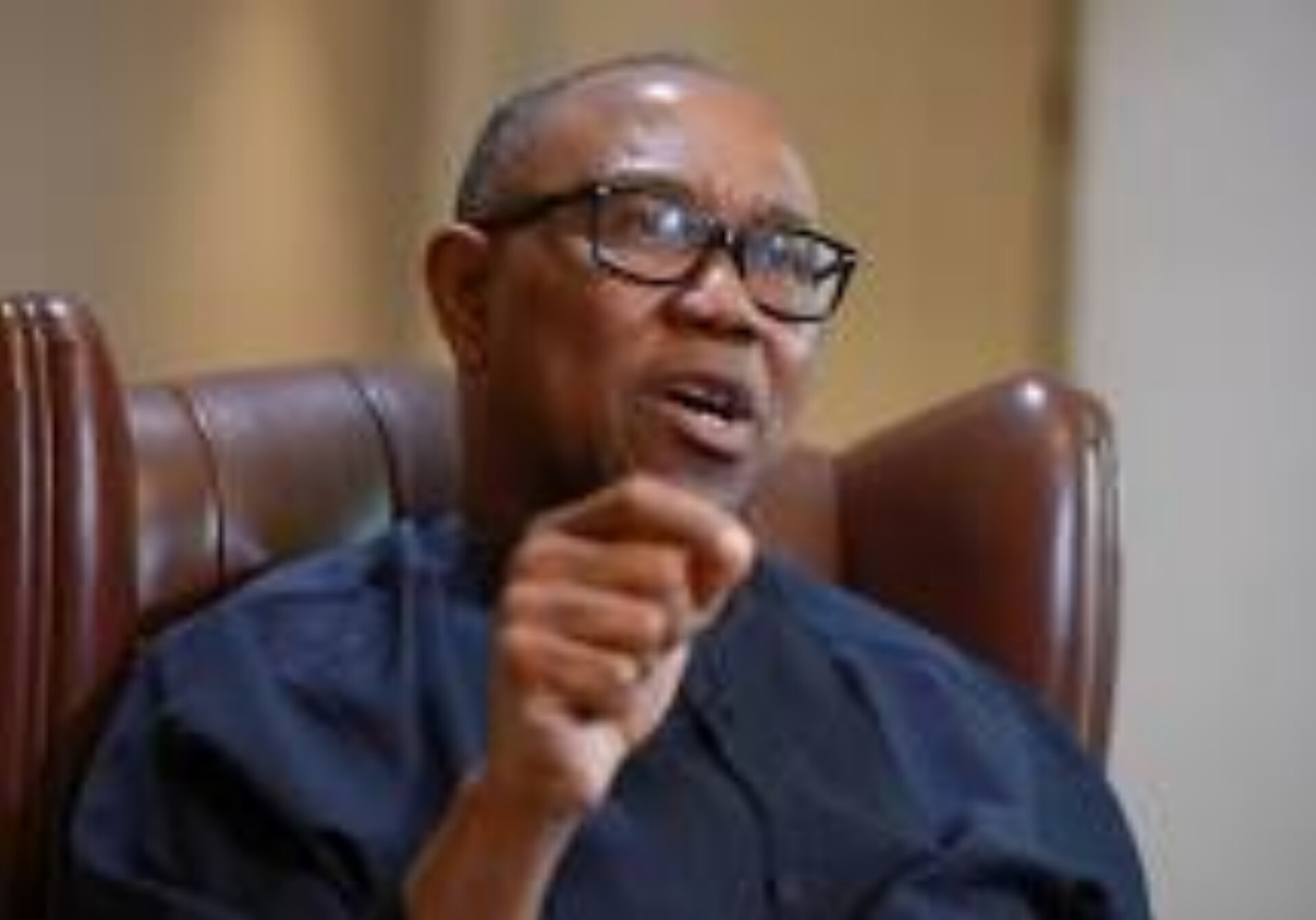National
PACAC picks holes in US 2021 report on corruption in Nigeria

***Says report based on sentiments, secondary data
Presidential Advisory Committee PACAC) has faulted the Annual Report of the USA on corruption in Nigeria regarding the year 2021 for having failed in number of respects it was not the reflection of the reality in the country.
PACAC pointed out that after a review of the report it was discovered that it had relied on perception, media sensationalism, political storyline and secondary data.
Speaking during a media parley on Friday in Abuja, Chairman, PACAC, Professor Itse Sagay told newsmen that though the report had acknowledged the huge efforts of the EFCC and ICPC it held that the duo were ignoring high profile looters.
Sagay pointed out that the report failed to take into cognizance that it was the internet fraud boys and their likes that had matured into local and international oligarchs, “So nipping it in the bud should be a plus not a minus.”
He said that it was counter intuitive to suggest that lower and middle class looters should be ignored since high profile looters were not arrested.
He said that the report failed to acknowledge that there were many safe guards like IPPIS, BVN, TSA, Transparency Portal, whistle blowing Policy, better banking regulations, declaration of assets amongst others that were used to reduce corruption in Nigeria.
He added that these were enacted by the present administration and its agencies.
He explained further that, “the report ignored the excellent work done by the EFCC and ICPC in the areas of arrest, prosecution, conviction, asset recovery, fraud prevention and public sensitisation.
“Today constituency projects are tracked, budget padding is gone, bribe for budget approval is no more, fuel subsidy scam has been eliminated, sleeze in NDDC is halted, P&ID, OPL 245 scams are under investigation and trial as well as numerous forfeited assets are being auctioned.
He disclosed that these proceeds were plowed into highly successful, social investment programme, the second Niger Bridge and other major infrastructural projects.
The PACAC Chairman noted that the American Report, unlike the CCD, UNODC and the Afrobarometer, was suffering from a methodological flaw because its sources of data for gathering the report apart from perception and sensational media reports were unknown and largely unreliable.
He added that, “if the reporters truly knew about massive corruption, what stopped them from being our good friends, by confiding in Nigeria to enable us halt it within and outside the country?”
“While fighting corruption by this government is a top priority, its successful execution under civilian rule poses a challenge. While all our Anti – Corruption Agencies are doing their best without executive interference, the judiciary and the NASS need to partner with the Executive more vigorously. “Additionally, States Governors and LGAs have to show more commitment to the fight against corruption to make it inclusive, comprehensive and total.
“Clearly, if parents, religious leaders, schools and the international community cooperate with the Government and the Anti – Corruption Agencies in Nigeria, corruption can be reduced drastically.
“Currently, while a lot of success has been recorded, more can be achieved in the fight against corruption if there is coordination, collaboration and cooperation by all stakeholders.
The Executive Secretary, PACAC, Professor Sadiq Isah Radda called on the media and Civil Societies, CSOs, to perform their duties of informing the public about the fight against corruption and the efforts that have been applied to bring the menace to its bearest minimum by the government and relevant agencies as this could be better done or propagated by the media.
Radda said that the Government was making efforts to fight the menace of corruption because the fight was not a choice but a necessity for the development of the country adding that “people who have stolen from the common wealth of the nation should not be allowed to enjoy this proceeds of the crime.”
He poited out that money laundering was a big problem not only on the part of apprehending the perpetrators but also in terms of spreading the awareness and knowledge of the laws that are put in place to fight corruption.
He said that there was no going back in the fight against corruption, terrorism and money laundering as long as this present administration was concerned.
National
Constitution Review: Akuns, Nnadi clash at NCEF consultative meeting

Traditional Ruler of Daffo in Bokkos Local Government Area of Plateau State, Da Jonathan Sunday Akuns, and the promoter of Nigerian Indigenous Nationalities Alliance for Self Determination (NINAS), Mr. Tony Nnadi, Thursday disagreed over the modalities to be adopted in birthing a new Constitution for the Federal Republic of Nigeria.
Akuns and Nnadi were among speakers at a consultative meeting convened by the National Christian Elders Forum (NCEF) on new constitution held via ZOOM.
Akuns contended that the 1963 Republican Constitution was not abrogated, all the House of Representatives need to do was to amend it to preserve Nigeria’s democratic and structural foundation.
He said “ethnic cohorts held a constitutional conference in Lagos on 25-26 July 1963 and mandated elected Members of the House of Representatives to enact the Republican Constitution with effect from January 10,1963.
“The enthroned autochthonous 1963 CFRN was never abrogated by military juntas, but simply suspended. Therefore, we need to carefully stitch the democratic strands of Nigeria by reviewing the autochthonous 1963 CFRN.”
Akuns, who is also an Economist and retired bank director, regretted that the Nigerian governing eras of 1966 to 1999 missed or messed with the opportunity to have called for the needed amendment of the 1963 constitution in order to restore the democratic foundations of the federal structure.
“As a result, the Federal Republic of Nigeria (FRN) suffered prolonged period of an interregnum that stifled and stunted the maturity of the tenets of republican governance in Nigeria. India is a global classic of republicanism in the nationhood strides of countries that also emerged by colonial creation.”
The former CBN director maintained that the best route for the constitution review process in the present circumstances is to tinker with the 1963 republican constitution, stressing that that is the best bet to preserve the democratic demands of constitution making.
But, countering Akuns’ postulations, the Executive Secretary of NINAS, Nnadi, argued that nothing short of a brand new corruption produced by indigenous nationalities can set the country right.
Nnadi, a lawyer and constitutional rights activist, noted that since sovereignty belongs to the people, the lie contained in the preamble of the 1999 Nigeria Constitution can only be cured by incorporating the inputs of Nigeria’s indigenous nationalities into a new constitution.
Citing Section 14 sub 2 of the Constitution, the NINAS chieftain explained that what the current National Assembly wants to do is not different from the past attempts at tinkering with the country’s grundnorm.
While insisting that amending the constitution would not berth equity and stability without suspending certain provisions stipulated by successive military regimes to foist a unitary constitution, Nnadi said there was need for a transitional procedure.
Another speaker, Elder Ayokunle Fagbemi, remarked that as the House of Representatives get ready to review the Constitution, it is necessary to build scenarios, noting that while the best case scenario is to birth a new constitution, the worse case scenario is that the legislature would not succeed in amending or getting a new constitution.
Fagbemi praised NCEF for the meeting saying that it would help to guide the Forum on the way forward as it prepares to engage with ethnic nationalities.
Earlier, the chairman of NCEF, Dr. Samuel Gani, disclosed that the consultative meeting was convened for Christian Elders to “deliberate on a new constitution for Nigeria and understand the different perspectives in the proposals for a new constitution before the NCEF with the ethnic nationalities.”
“Presently, there are four different perspectives in getting a new constitution for Nigeria, including *Amendment of the 1999 Constitution by the National Assembly.
“Adoption of the 2014 National Conference Report and its draft Constitution, *Adoption of the 1963 Republican Constitution (for) amendment to reflect current realities and A New Constitution developed by the ethnic nationalities,” he stated. Some of the dignitaries that attended the meeting included General Zamani Lekwot, Elder Nath Okoro, Mrs. Shola among others.
National
Akpabio congratulates new world chess record holder, Tunde Onakoya

President of the Senate, Senator Godswill Obot Akpabio, has sent a message of congratulations to Nigeria’s Tunde Onakoya for the feay in setting a new world chess record and etching the country on the world map.
The Nigerian chess champion has broken the world record for the longest chess marathon after playing unbeaten for more than 58 hours in New York City’s Times Square to raise money for underprivileged children.
Akpabio’s congratulatory message ehich was signed by his Special Adviser on Media and Publicity, Hon. Eseme Eyiboh and made available on Sunday in Abuja described Onakoya’s achievement as typical of the audacity of Nigeria’s spirit of determination, hard work and resilience.
“My joy knows no bounds as I celebrate this young and adroit Nigerian, Tunde Onakoya, who is imbued with the Nigerian spirit of determination, hard work and resilience and has elevated our dear country in the comity of nations.
“On behalf of the Senate and the Nigerian National Assembly, my constituents in Akwa Ibom North West Senatorial District and my family, I heartily congratulate and rejoice with Tunde Onakoya on this onerous achievement.
“I followed closely while the competition was on and I must commend the brand-new world champion, Tunde for remaining steadfast despite the challenges he had during the journey.
“I am happy that the dream behind this laudable project is to raise funds for indigent African children to also, explore the opportunities that abound in the game of chess. This is a good way of grooming other champions and taking many children off the streets.
“I wish to use this opportunity to advise Nigerians, especially the youth to borrow a leaf from our latest hero- never to give up when they embark on a legitimate enterprise, no matter the obstacles. With youth like Tunde, Nigeria has greater hope to attain her potential”.
National
Obi sounds the alarm over deplorable Power Situation

***Says Nigeria cannot grow its economy in Darkness
***Expresses sadness that Nigeria is the lowest per capita wattage in the World.
***wants a Technical Task Force in Place.
The incessant power situation in the country with record of national grid collapse 141 times in 11 years is a case for urgent pragmatic solutions, the Presidential Candidate of the Labour Party (LP) in the 2023 general election, Peter Obi has indicated
He expressed deep concerns that Nigeria has only 13,000mw while the demands are about 200,000mw.
Obi pointed out that even with the 13,000mw, only about 3,500mw are available for homes and businesses noting that the situation puts Nigeria as the lowest per capita wattage in the World.
In an article, titled “The Collapsing Electricity Sector”, the LP standard’s bearer said “The Nigeria electricity supply industry faces real and present danger of collapse despite the efforts made in more than two decades to initiate a reform of the NESI.
“It is sad today that we suffer periodic and routinized system collapses that are attributed to such avoidable situations as fire outbreaks at critical transmission lines across our major cities.
“It is absolutely distressing and a story of a low level of managerial capability that the entire nation can be plunged into total darkness for a reasonable period because networks go out because of a lack of diligent attention.
“It should worry any Nigerian patriot that the total installed capacity for a country of more than 200 million people with an aspiration to become a global medium economy power is a mere 13,000.
“Worse still, only about 3,500mws are available for homes and businesses from the grid. Sometimes, it grinds to less than 2,500mws. This is unacceptable.
“We can contrast the available supply of electricity with competitor countries in Africa like Egypt and South Africa with respective populations of approximately 112m and 59.6m people supplying about 60,000mw and 58,000 respectively.
“This difference in energy wattage has massive implications for human development and economic growth.
“Nigeria today has the world’s lowest per capita wattage in the world, interesting lower than those of most of our West African neighbours.
“It is really sad that whereas our energy demand is above 200,000mws, we have only 13,000mw installed capacity and can only deliver regularly less than 4,000mw.
“After speaking with experts in the sector I have realized that the crisis of power supply in Nigeria relates to two major sectors: (1) generation, and (2) transmission and distribution.
“The major challenges of the generation sector are the lack of a regular supply of gas arising from the failure of the government in the last 8 years to provide adequate gas infrastructure facilities, weak commerciality of gas to power and failure to control the restiveness of angry youths leading to vandalism.
“It is shameful that for more than 8 years we cannot resolve the infrastructural bottlenecks that constrain the supply of gas to power plants despite billions from CBN for legacy gas debts.
“On the transmission and distribution side, the last 8 years have witnessed terrible failure to overcome the deterioration of networks and transmission and distribution networks and invest in modern technologies like SCADA leading to poor coverage, lack of effective coordination between TCN and discos leading to load rejection and inability to generate public trust for policy reform on tariff and leading to low private sector investments.
“If we had a good project manager, we would have massively increased generation, transmission and distribution capacity and enhanced policy coherence that would have crowded private sector investment in the degree to sustained rapid growth of the grid. The problem is that the government have exercised the required political will to appoint the right kind of leadership that understands the problems of the sector and has the singular dedication and competence to create quick wins in the short term and transformation in the medium to long term.
“I suggest that the Federal Government immediately constitute a technical task force of real professionals without political consideration to present a diagnosis of the crisis of the sector and to get to work to correct such simple slippage like incessant fire outbreaks that lead to perennial system collapse, drastically improve coordination and coherence between TCN and discos so there will be no load rejection, and breath down on all operators to deliver on their technical responsibilities. This will rapidly improve power availability in the short term while the government develop clarity to articulate an integrated national electricity policy and a practical implementation roadmap that harmonizes national and sub-national electricity reform efforts to ensure rapid and expansive delivery of reliable, adequate, and affordable electricity.
“We are too endowed to be a nation of generators and to be trapped in darkness. We cannot grow our economy in darkness.
-

 Crime6 months ago
Crime6 months agoPolice nabs Killer of Varsity Lecturer in Niger
-

 News3 months ago
News3 months agoFCT-IRS tells socialite Aisha Achimugu not to forget to file her annual returns
-

 Appointment8 months ago
Appointment8 months agoTinubu names El-Rufai, Tope Fasua, others in New appointments
-

 News From Kogi6 months ago
News From Kogi6 months agoINEC cancells election in 67 polling units in Ogori-Magongo in Kogi
-

 News From Kogi8 months ago
News From Kogi8 months agoEchocho Challenges Tribunal Judgment ordering rerun in 94 polling units
-

 News7 months ago
News7 months agoIPOB: Simon Ekpa gives reason for seperatists clamour for Biafra
-

 Metro1 month ago
Metro1 month ago‘Listing Simon Ekpa among wanted persons by Nigeria military is rascality, intimidation’
-

 News4 months ago
News4 months agoKingmakers of Igu/ Koton-Karfe dare Bello, urge him to reverse deposition of Ohimege-Igu

